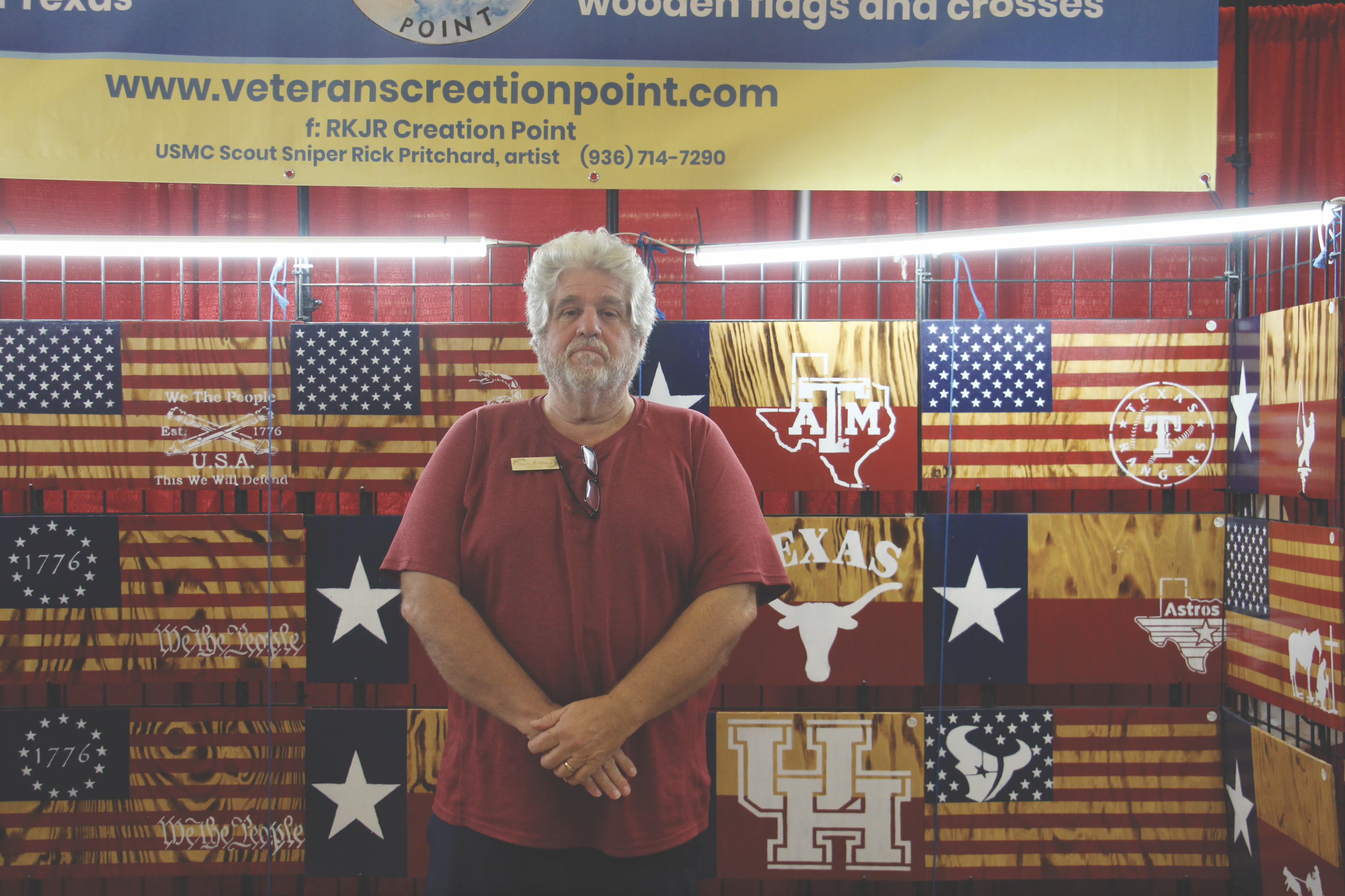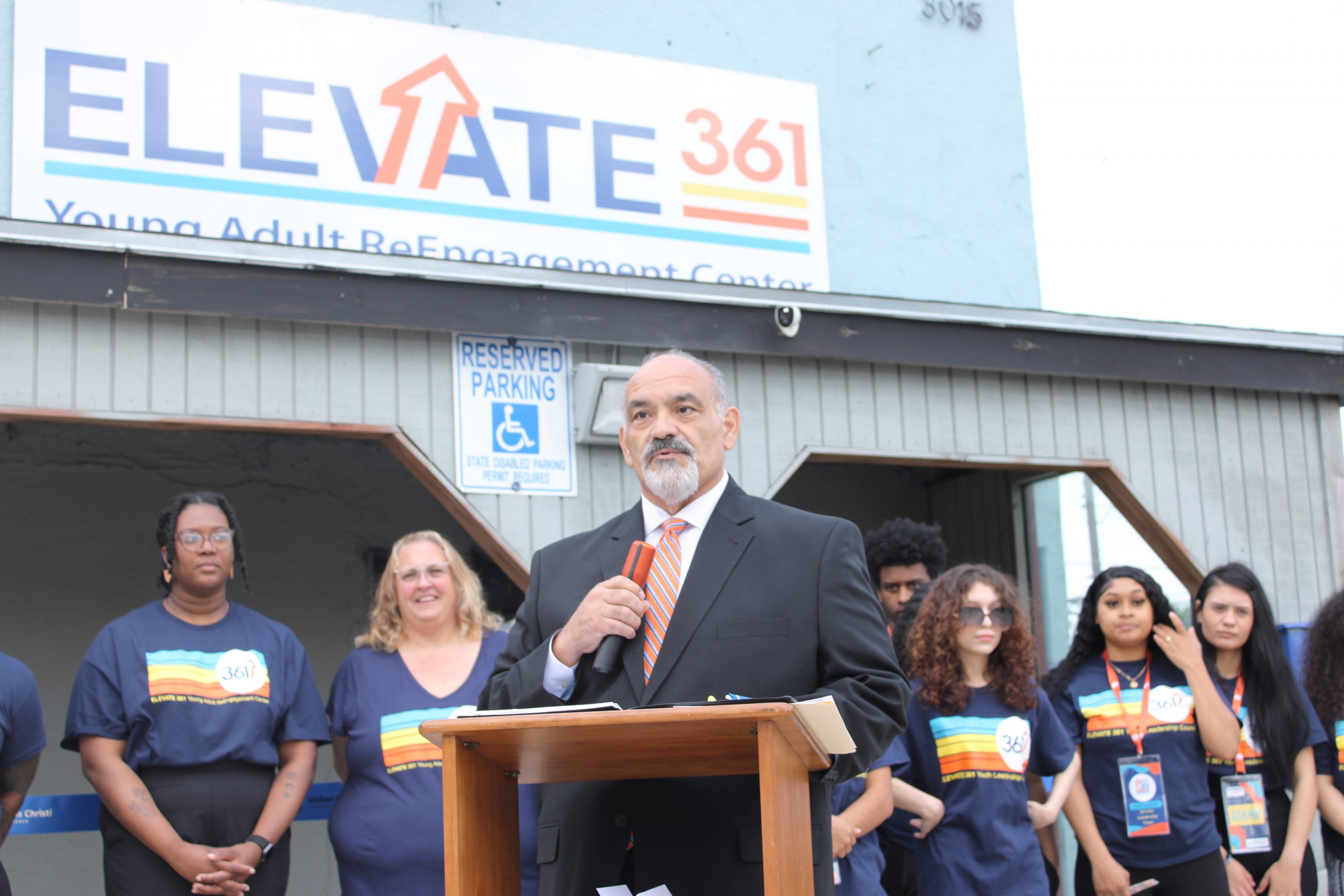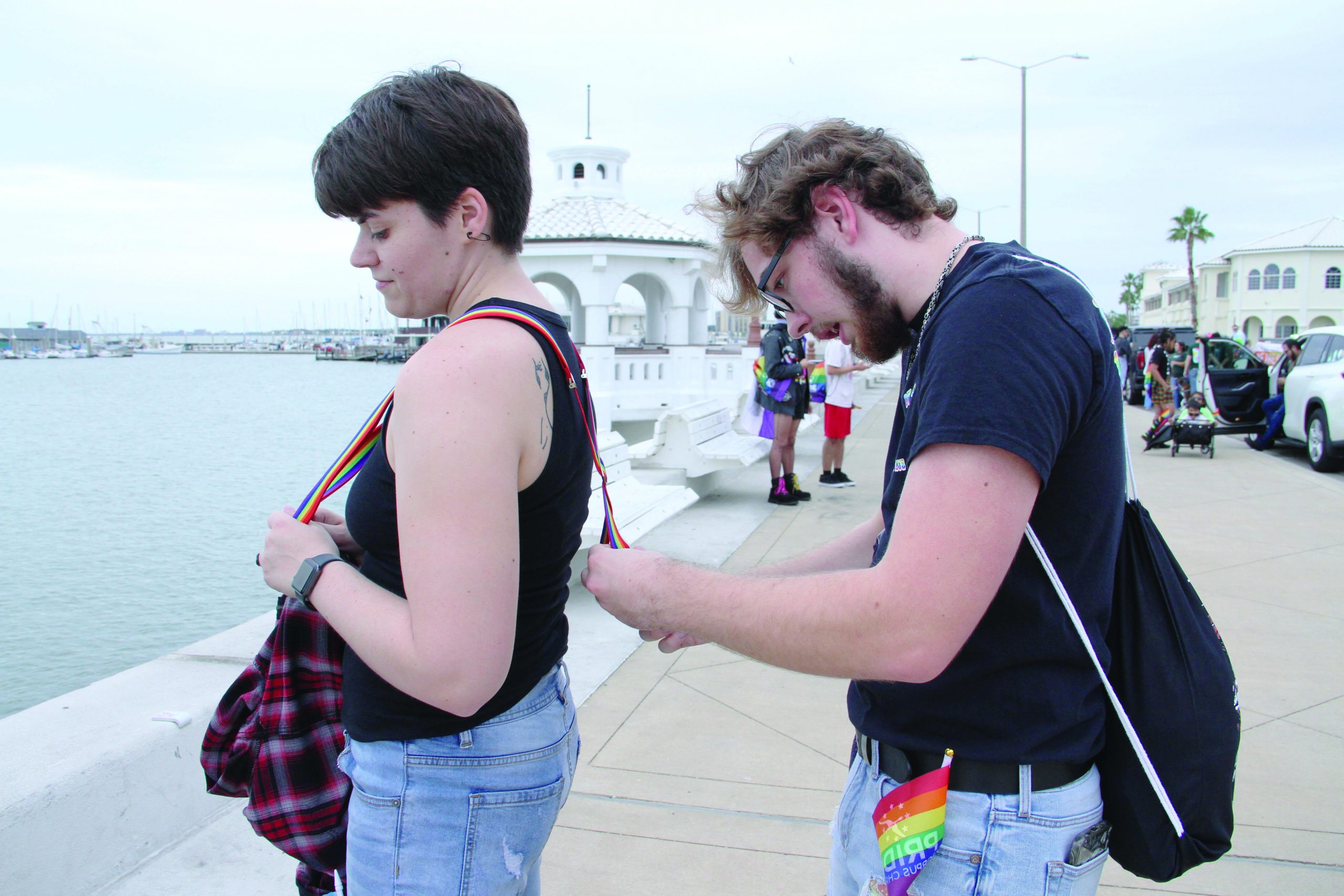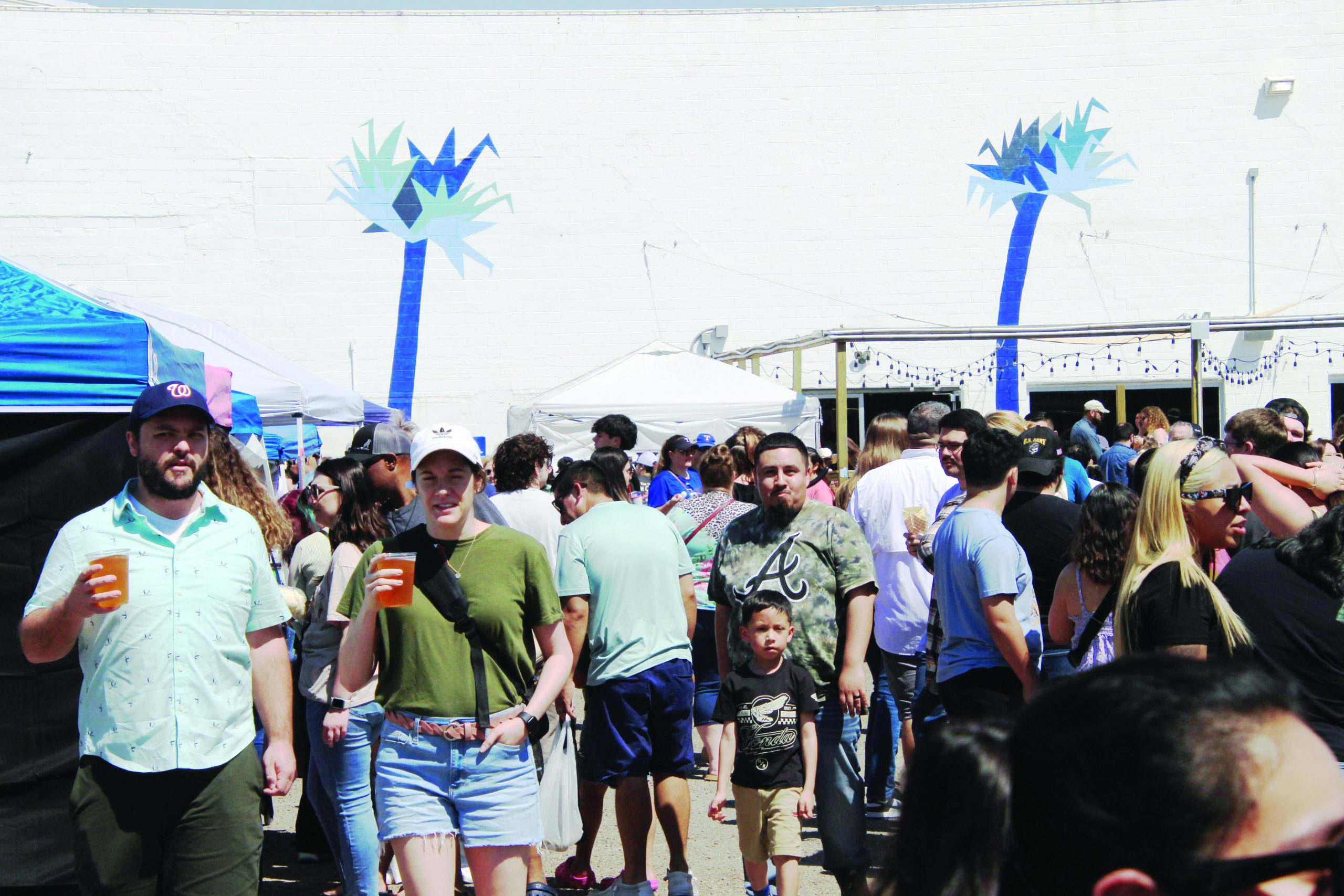Former Marine encourages fellow vets to seek help if they’re struggling
The dimly lit booth filled with an assortment of handcrafted wooden flags and crosses sits quietly in the middle of a bustling crowd of people at the Hollydays Market of the American Bank Center.
While most venders attempt to sell their products to potential customers as soon as their wandering eyes hit their booth, Rick Pritchard sits alone in the corner of his.
Isolated from the crowd, and silent among the lively chatter that fills the market, Pritchard’s demeanor paints a picture of his past.
His eyes reveal the fact that he’s seen things he most likely wishes he hadn’t; his firm handshake, the insurmountable amount of strength he must have gained through it all.
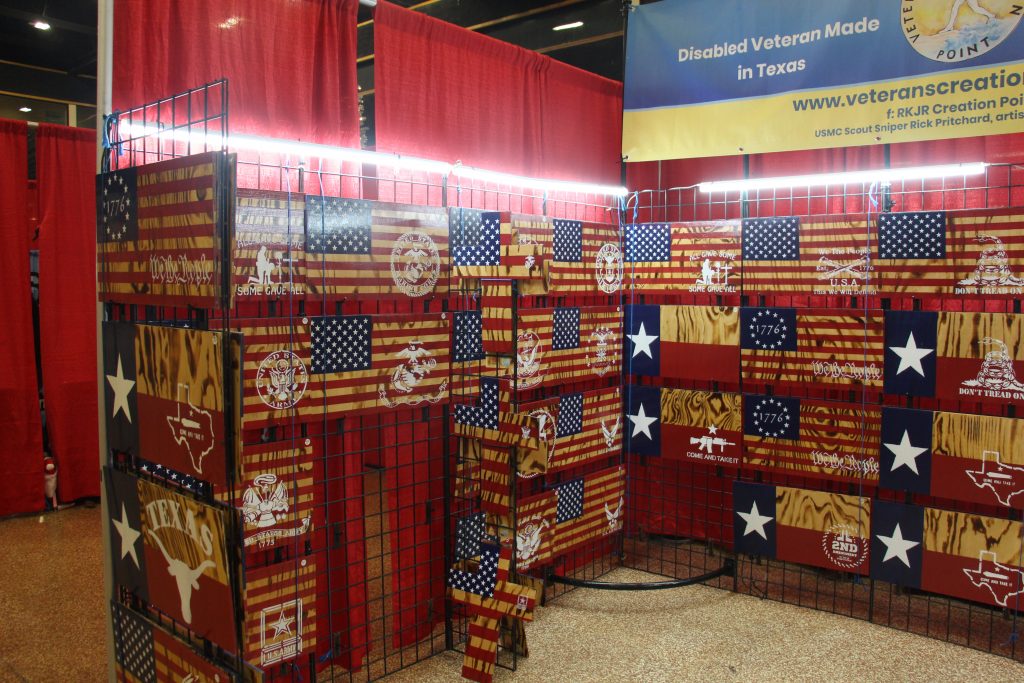
The large sign above his booth reads United States Marine Corps Scout Sniper, along with the words Disabled Veteran.
The written words tell viewers who Pritchard is, but one look at his character is enough to know what this former Marine has experienced in his past life.
Pritchard was sitting in his corner alone because he suffers from PTSD. He created his business, Veterans Creation Point, as a way of coping with it.
Having served in the USMC for eight years, Pritchard mentioned he had been sent on six different deployments, and 18 countries.
“I was in the pre-invasion of Central America in Panama,” he said.
“Nobody knows it, but the Marines were there before we invaded Panama. So I was down there about a year before we invaded the country. I was down there for about 108 days,” he said.
And he’d do it all over again in a heartbeat. The only thing he’d change is to reach out for help sooner than he did.
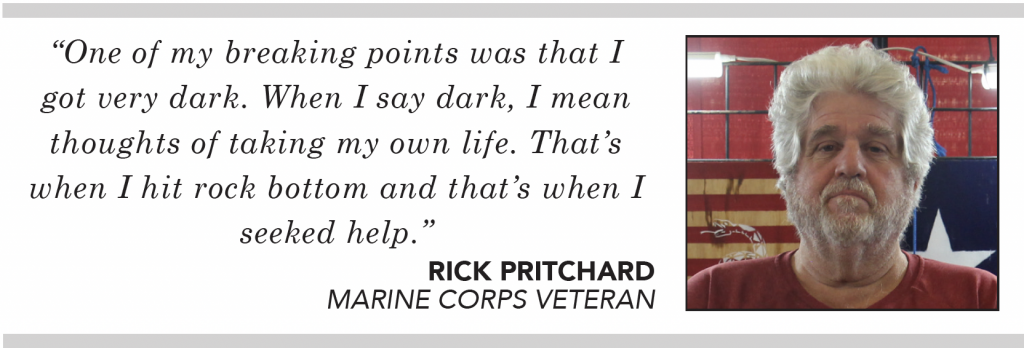
Pritchard’s experiences during his eight years left a lasting impact. They made him into a person he barely recognized.
“Back then, in the late ’80s, people wouldn’t even talk about PTSD,” he said. “You really didn’t even want to have that title of having it, so I lived with it for almost 20 years after I got out.”
During this period, Pritchard’s undiagnosed PTSD left him utterly miserable and indifferent to the civilian world.
“I stayed away from other veterans,” he said. “I put all the stuff I did in the military inside a Pandora’s Box is the best way to describe it. I was still very short fused.”
Through this, he revealed his untimely struggle in the corporate world as well.
“Later on, my PTSD did end up getting me fired from my job because of the way I treated people,” Pritchard said.
All of these bitter moments built upon each other and left a lasting impact on Pritchard’s personal life, specifically in his dwindling relationship with his wife.
According to him, none compared to the moment of no return, the moment he knew he needed help.
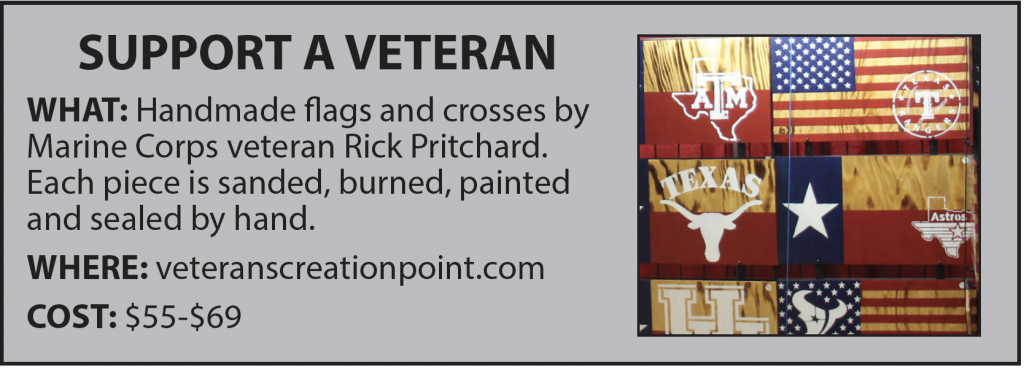
“One of my breaking points was that I got very dark. When I say dark, I mean thoughts of taking my own life. That’s when I hit rock bottom and that’s when I seeked help,” he said.
Upon arrival at the VA, Pritchard was immediately diagnosed with PTSD and received medication through them. He credits the VA the most in his transition into the man he is today.
Through these treatments, Pritchard discovered art therapy, and Veterans Creation Point was born. He takes the company with him to different shows across Texas.
“The singleness of the work is designed to reflect my continuing effort to remain whole, unbroken and unbending to the pressure of my memories,” Pritchard writes in his written statement about the meaning behind his wooden flags.
“Although the character of my art is revealed in the dark contrast that results from the flame, my own character develops daily as I focus on the light of my existence in Christ,” he writes about the significance behind the crosses.
“When I go to shows, it really makes me feel good how people appreciate the work I do,” he said.
A benefit, of course, is that he’s getting his name out there, but it’s not the true reason Pritchard does what he does, as he puts it.
“There was a time where I met this one veteran who bought a cross from me, and I told him, I said, ‘When you go dark, you look at that cross.’ He walked away with that cross just hugging it.
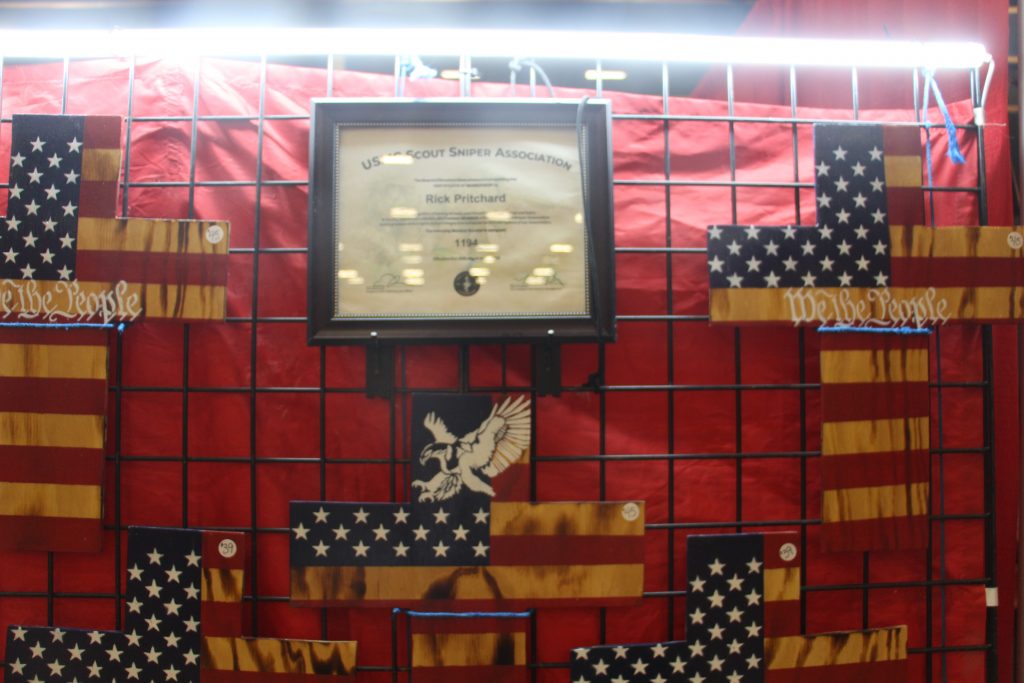
“It made me feel good because more than likely down the road that cross is gonna stop him from taking his own life. That he’s gonna look at it and think, ‘Hey there is hope,’ ” Pritchard said.
Through this story, Pritchard brought out the fact that he has identified other veterans with severe PTSD and reflected his true belief that they should ultimately go to the VA to seek help.
“The number one thing you have to do no matter what is get in the VA system and keep yourself connected through them,” he said.
As Pritchard stated simply, and learned personally through his own experiences, the worst thing you can do is try to handle these issues on your own.
“Most people have pride; you don’t wanna say there’s something wrong with you either. You gotta eat your pride up and say that you do need help.


